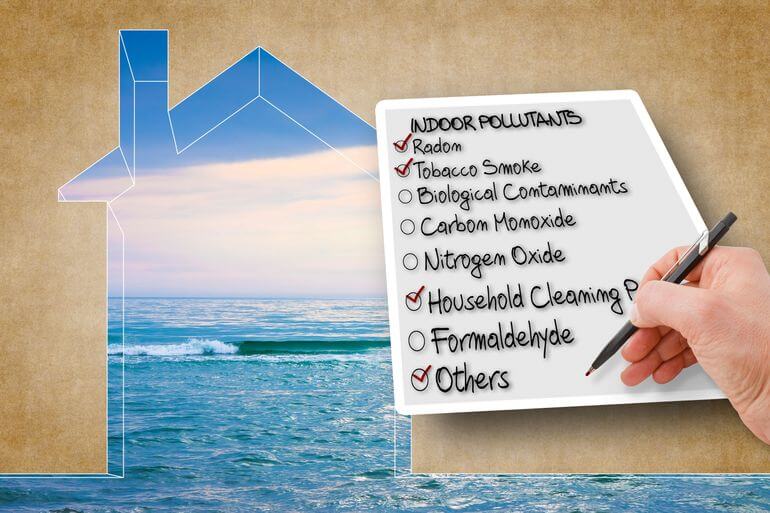Create a clean, filtered, comfortable home
Indoor air quality isn’t just about keeping your home cool and fresh it’s also about high-quality, clean filtered air that’s free from contaminants. Allergens, dust, dander, and pet hair are all present in the air, but with our indoor air quality services, we can make sure your air is clean and filtered at all times.
By letting our team install a whole-home air purifier system, you’ll be able to enjoy filtered air in your home and reduce the risk of agitating allergies or respiratory issues.
Our air quality team has years of experience when it comes to working with air purification systems and can install one for your home in no time at all.
Improve your indoor air quality today with our professional air filter system installations.

How can you improve your indoor air quality?
An efficient, high-quality air filtration system is ideal for catching and trapping air pollutants like pollen, dust, bacteria, and even pet hair.
Air filtration systems also help keep your HVAC system in top condition, and they’re one of the most cost-effective air quality solutions.
You can improve the quality of your home’s air by:
- Have your HVAC unit regularly maintained to ensure it’s working properly
- Using a kitchen exhaust fan while cooking
- Using a bathroom exhaust fan when showering
- Checking your home regularly for leaks that could lead to mold
- Checking for any potential water damage
- Investing in a high-quality air purifier
At Austin Comfort Specialists, we only install top-of-the-range air filtration systems in our clients’ homes. If you want to start improving your home’s indoor air quality, let our team of technicians install an air filtration system in your home today.